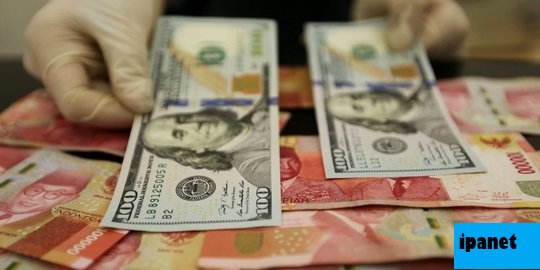Beberapa Negara dengan investasi Asing Terbesar di Indonesia – Perekonomian Indonesia terus menawarkan potensi besar berkat pertumbuhan ekonomi negara yang berkelanjutan, populasi muda yang besar, stabilitas politik, dan kelas menengah yang tumbuh, serta sumber daya alam yang melimpah.
Beberapa Negara dengan investasi Asing Terbesar di Indonesia
ipanet – Investasi memiliki efek pengganda yang besar dalam mendorong pertumbuhan ekonomi, menciptakan lapangan kerja, dan menggeser ekonomi berbasis konsumsi saat ini ke ekonomi yang didorong oleh produksi.
Dikutip dari investindonesia, Investasi merupakan pendorong utama integrasi ekonomi internasional dan salah satu dari sedikit faktor pertumbuhan ekonomi negara termasuk Indonesia. Dengan kerangka kebijakan yang tepat, investasi dapat memberikan stabilitas keuangan, mendorong pembangunan ekonomi dan meningkatkan kesejahteraan masyarakat. Sumber investasi di Indonesia berasal dari Penanaman Modal Dalam Negeri (PMDN) dan Penanaman Modal Asing (PMA).
Baca juga : Hal Penting yang Perlu Anda Ketahui tentang Penanaman Modal Asing Langsung di Indonesia
Seperti yang kita ketahui, saat ini kita sedang menghadapi wabah pandemi COVID-19 di hampir setiap negara di dunia termasuk Indonesia. Total realisasi investasi Indonesia sedikit meningkat pada kuartal pertama tahun ini, namun kesengsaraan ekonomi global akibat pandemi COVID-19 kemungkinan akan membalikkan tren investasi di sisa tahun ini.
Badan Koordinasi Penanaman Modal (BKPM) mengumumkan data realisasi investasi triwulan I (Januari-Maret) tahun 2020 mencapai Rp 210,7 triliun atau naik 8,0% dibandingkan periode yang sama tahun 2019. Realisasi investasi triwulan I memberikan kontribusi sebesar 23,8% terhadap realisasi investasi. Tahun 2020 menargetkan realisasi investasi sebesar Rp 886,1 triliun. Realisasi PMDN mencapai Rp 112,7 triliun dan realisasi PMA mencapai Rp 98,0 triliun.
Ada beberapa negara yang berkontribusi terhadap FDI Indonesia pada triwulan I-2020, sebagian besar merupakan negara tetangga di Asia. Berikut adalah lima besar negara dengan investasi asing terbesar di Indonesia.
1. Singapura
Di tengah wabah COVID-19, Singapura masih konsisten menduduki peringkat sebagai negara utama asal FDI. Pada kuartal I 2020 dengan US$ 6,5 2,7 miliar atau setara dengan 23,1% 40% dari total realisasi FDI di Indonesia, Singapura sangat optimis dengan prospek bisnis di Indonesia. Namun, Singapura menempati posisi ketiga selama kuartal keempat 2019, menginvestasikan US$ 1,1 miliar dalam usaha bisnis.
2. Cina
China telah menjadi pemain kuat dalam FDI Indonesia. Melampaui Singapura, China naik ke peringkat pertama sebagai negara teratas dengan investasi asing terbesar di Indonesia selama kuartal keempat 2019 dengan US$ 1,4 miliar. Pada kuartal I 2020, China menempati posisi kedua dengan total investasi asing US$ 1,3 miliar. Terutama, investasi China di bidang transportasi, industri, dan pariwisata Indonesia.
3. Hongkong
Hong Kong bersama China mendongkrak total investasi asing pada kuartal terakhir 2019 sebesar US$ 1,1 miliar, yang secara efektif menempatkan Hong Kong ke dalam daftar negara-negara terkemuka FDI di Indonesia. Apalagi Hong Kong telah menginvestasikan US$ 2,9 miliar sepanjang 2019 sebesar US$ 0,6 miliar sepanjang kuartal I 2020, atau sebesar 10,2% 9,3% dari total realisasi FDI.
4. Jepang
Penanaman modal asing terbesar lainnya datang dari Jepang. Ikatan yang kuat antara Indonesia dan Jepang telah mengakibatkan Jepang secara konsisten menempati peringkat lima besar investor asing. Pada kuartal I 2020, Jepang telah menginvestasikan US$ 0,6 miliar. Beberapa sektor yang diinvestasikan Jepang adalah listrik, real estate, gas, dan industri.
5. Malaysia
Pada kuartal I 2020, investasi asing yang diperoleh Indonesia dari Malaysia mencapai US$ 0,5 miliar. Hal ini menempatkan Malaysia di antara pesaing FDI terbesar di Indonesia, menghapus Belanda dari daftar di mana investasi mencapai US$ 0,5 miliar pada kuartal keempat 2019
Sektor dengan investasi terbesar
Sektor Transportasi, Pergudangan, dan Telekomunikasi mendominasi realisasi investasi sebesar 23,4% dari total realisasi sepanjang triwulan I-2020. Berikut 5 sektor unggulan yang menjadi unggulannya:
- Transportasi, Gudang, dan Telekomunikasi (Rp49,3 triliun)
- Industri Logam Dasar, Barang Berbahan Logam, Non Mesin dan Peralatan (Rp24,5 triliun)
- Listrik, Gas, dan Air Bersih (Rp18,0 triliun)
- Perumahan, Kawasan Industri, dan Perkantoran (Rp17,8 triliun)
- Tanaman Pangan, Perkebunan, dan Peternakan (Rp17,2 triliun)
Sedangkan untuk sebaran penanaman modal asing, kabupaten dan daerah di luar Jawa terus menunjukkan tren peningkatan. Termasuk DKI Jakarta, Jawa Barat, Maluku Utara, Kepulauan Riau, dan Sulawesi Tenggara.
Baca juga : Bermacam Tipe Tanam Modal (Investasi) Online di Indonesia serta Tipsnya
Realisasi pada triwulan I-2020 cukup menantang karena wabah COVID-19, FDI di Indonesia turun 9,2% dibandingkan periode 2019. Pemerintah berharap perusahaan asing dan domestik dapat bertahan dalam operasinya dengan tetap menjalankan aturan dan regulasi. BKPM sebagai institusi pemerintah tetap berkomitmen untuk mengawal proyek investasi mulai dari perizinan hingga penyelesaian masalah di lapangan dan bersama Kementerian/Lembaga lainnya terus terus memfasilitasi kendala yang dihadapi perusahaan, terutama di tengah pandemi COVID-19. BKPM optimis wabah ini akan segera berakhir dan perekonomian akan pulih kembali.
